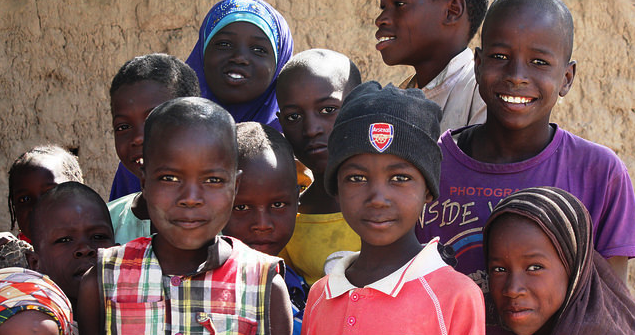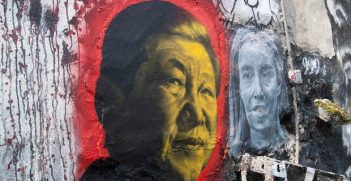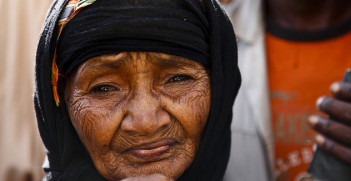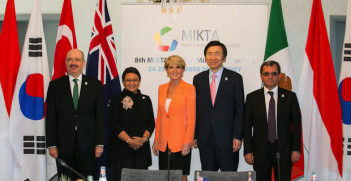Boko Haram - Beyond Nigeria

This week marked the first anniversary of the kidnapping of 219 schoolgirls by the terrorist group Boko Haram. There is also real concern about the spread of Boko Haram beyond Nigeria’s borders, which begs the question:
What is Boko Haram?
Even fourteen years after 9/11, the West is faced with the unwelcomed fact that the threat of violent terrorism and Islamic extremism are not going away any time soon. Thus, it has turned its attention to one of the newest strands of radicalism, Boko Haram, which is currently breeding fear in Nigeria. The militant Islamist group claimed international press infamy a few years ago, with its suicide bombing of the United Nations office in Abuja and the subsequent kidnapping of over 200 school girls. Yet, the group became a more timely concern with the recent democratic elections that occurred in Nigeria.
Last week Nigeria made international headlines as the democratic torch was passed to a new president for the first time in the country’s history. Millions of Nigerians queued for hours at polling booths to vote in Muhammadu Buhari from the All Progressive Congress (APC) and subsequently oust Goodluck Jonathan of the People’s Democratic Party (PDP). Disillusioned voters could have labelled the democratic decision a choice between a past Orwellian dictator and a failed president. However with the shadow of a notorious terror group, Boko Haram, growing darker in the north it became a choice for Nigerian citizens between action and inaction.
Under Jonathan’s presidency, Boko Haram slaughtered more than 13 thousand Nigerians and displaced over 1.5 million in its attempt to carve out an Islamic caliphate since 2009. The extremists are currently waging the most brutal insurgency in Africa. Yet, the name is still clothed in mystery for many Westerners and often associated laconically with “the disappearance of those 200 school girls.” Thus, a blind eye has been turned towards Africa’s Islamic State.
Boko is the Hausa word for “book” and refers to Western education, while Haram is the Arabic word for “forbidden.” Ultimately, the group is opposed to Muslims partaking in any political or social activity associated with “the West.” This includes democracy, modern science, receiving a secular education and even wearing t-shirts.
Last year, the leader of Boko Haram, Abubakar Shekau announced a caliphate in all Nigerian regions under the group’s control and endorsed Abu Bakr al-Baghdadi, the self-nominated caliph of Muslims worldwide. Shakau, accompanied by armed and masked militants, declared to the world: “We are in an Islamic caliphate. We have nothing to do with Nigeria. We don’t believe in this name.” Boko Haram envisions Allah’s kingdom on earth through violence against any non-believers. Thus, Nigeria has been shrouded in violence.
Boko Haram is regularly the name seen in newspapers associated with village massacres, suicide bombings, mass rapes and teenage abductions occurring in Nigeria. As such, Nigerians even believe the words Boko Haram to hold an incantatory power – refusing to the say the name aloud in fear. Instead the euphemisms of “the crisis” or “the insecurity” have replaced it in their vernacular. Indeed, its shadow is growing ever-present domestically.
Boko Haram on the world stage
However, as it often does, the West wraps itself in selfish self-preservation and asks: “what does Boko Haram mean for us?” Boko Haram has expanded its military activity into neighbouring countries and expressed solidarity with Al-Qaeda. They have kidnapped 11 Westerners since 2013; purposefully attacked Western interests, such as in the UN headquarters bombing in Abuja; and made open threats against the United States and its Western counterparts. Also, just like ISIS, they are exporting their Jihadist message virtually, past domestic borders.
This threat should not be regionally conditioned as Boko Haram has clearly exhibited that its menace umbrellas the world’s interests. After a long pre-occupation with Islamist extremism in the Middle East, it may be time for Australians to turn their heads to the Islamic State growing in Africa.
Emily Lighezzolo is an intern at the Queensland Branch of the Australian Institute of International Affairs. This article can be republished with attribution under a Creative Commons Licence.





